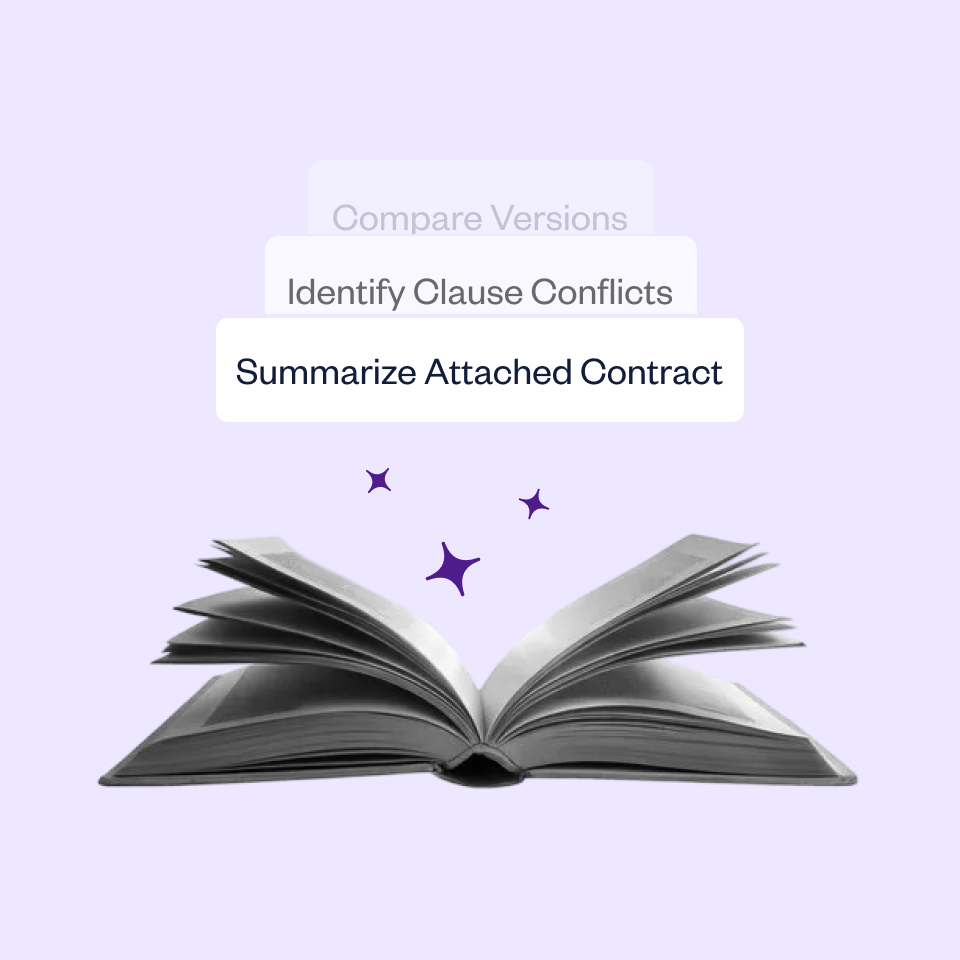You put contracts in place with your clients, employees, suppliers, and investors to lay out the terms of your relationship and stipulate each party’s rights and responsibilities.
The document helps ensure that neither party’s rights are infringed upon and that no party fails to live up to their responsibilities.
But what happens when this isn’t the case?
What happens if one party doesn’t act in accordance with the terms of the contract?
This action, known as a breach of contract, can be a serious violation, leading to termination of the contract and potential legal action.
In this article, we’ll provide a guide to contract breaches covering everything you need to know to spot, handle, and resolve a breach of contract.
What is a breach of contract?
A breach of contract is any violation of the previously agreed-upon terms and conditions in a legally binding contract.
So, a violation of any clause in your agreement — so long as it is legally binding — is considered a breach.
This means that a breach of a business contract can run the gamut from a payment being received one day late, to gross negligence and failure to deliver the stipulated goods or services altogether.
A breach of a contract is not considered a crime. As such, punitive damages are rarely awarded. More commonly, the remedy for a breach of contract case is to give the non-breaching party what was originally agreed upon. We’ll discuss that in more detail a bit later, though.
First, in order to help you manage contract risk, it's important to understand what kinds of breaches exist.
What types of breach of contract are there?
While any violation of an agreement is a breach, we can further define a breach of contract using the following categories:
Minor breach
A minor breach of contract is when you don’t receive something by the due date. In the case of the buyer, this would be the good or service you paid for. As the seller, a minor breach is when you don’t receive payment by the agreed-upon date.
Material breach
A material breach of contract (generally considered more serious) is when you receive something different than stated in the contract or don’t receive it at all.
For example, your customer doesn’t pay you, or your office goods supplier sends 20 reams of 200gsm paper when you ordered 180gsm.
Actual breach
An actual breach of contract is when a party refuses to perform the terms of a contract. This can be either a minor or material breach.
Anticipatory breach
An anticipatory breach of contract is when one party informs the other in advance that they won’t be delivering on the terms of the agreement.
It’s like saying, “We are going to breach the contract.”
This might happen if, for example, a company learns of a supply chain issue which means they won’t be able to deliver on the terms of a contract, and they want to let their client know early.
Also read: Finding Common Ground: How to Resolve Contract Disputes
What are the damages or repercussions of contract breaches?
The repercussions of contract breaches vary.
Sometimes, they are written into the contract. For example, in the case of a minor breach where the customer pays more than three days later, a $50 late payment fee may be charged on top of the original price.
If not, then the first step is generally for the two parties to reach an agreement on how to remedy the breach, known as negotiation.
For instance, in the event of a late delivery, the two parties may agree that a suitable remedy is a 10% discount on the final bill.
If the two parties can’t agree, then an out-of-court discussion — known as mediation — may be a valuable and less costly method for resolving the dispute.
Mediation is when the two parties in a contract engage in a negotiation conversation with an unbiased third party present.
If neither of these two processes result in an agreeable compromise between the parties, then the case moves forward to binding arbitration. This is when a third-party arbitrator hears both arguments and makes a determination as to how to resolve the breach dispute.
This is the last step before going to court. It's still a legally binding decision, but the arbitrator isn’t able to impose penalties or sanctions.
Finally, should this step not resolve the breach of contract, then the parties must go to court and present their cases in front of a judge.
Legal issues related to breaches of contract
When it comes to proving a breach of contract in court and then determining appropriate actions, there are three things we need to consider:
- Mutually beneficial breaches
- Contract validity
- Reasons for breach
Mutually beneficial breaches
First, you’ll want to consider the case of a mutually beneficial breach.
This is when both parties actively want to breach the contract. For example, a marketing agency and its customer may mutually decide, after engaging in discovery conversations, that they aren’t a good fit for each other and determine that a mutual breach of the contract is the best move.
Contract validity
If there is no mutual breach, and the non-breaching party wishes to pursue a breach of contract claim, then the court first needs to understand if there is a legally binding and valid contract.
If not, there is no contract, so there can be no breach.
The best way to prove that an agreement exists is to provide the signed document. If it's signed by all parties in a legally binding manner, then you have a contract.
Also read: Are Electronic Signatures Legal?
Oral agreements are a little tricker. They can still be legally binding in some cases, but there are often limitations on timeframe and contract value. A written contract is generally preferred.
In proving that a breach exists, the courts will review each party’s obligations under the contract to determine whether or not they have violated the agreement.
Reasons for breach
Next, the court will determine whether there was a legal reason for the breach.
For example, the accused party might argue that the contract was signed under duress, rendering it invalid.
Once they’ve determined that there was, in fact, a breach and that there was no valid legal reason for this breach, then the remedies are considered.
How can you remedy a breach of contract?
Generally speaking, if it can be proven that a breach of contract exists, then the remedy is to give the non-breaching party what was originally promised.
This isn’t always the case, however, and sometimes it’s simply not possible, so there are a few different ways that breaches can be remedied:
Compensatory damages
One of the more common legal remedies for a breach of contract is known as compensatory damages.
Here, the party who is in breach of contract must pay for the damages sustained by the other party as a result.
Compensatory damages are calculated on that basis and can fall into two categories:
- Expectation damages
- Consequential damages
Expectation damages, also known as general damages, are those that result directly from the contract breach.
For example, say your company hires an event planner to organize an upcoming conference. The contract price is $50,000. A few weeks out from the event, however, the planner pulls out of the agreement, breaching their contract. You find another planner who can take over on short notice but they’ll charge $80,000 for the quick turnaround.
In this case, expectation damages of $30,000 (the difference between the original cost and the new cost) may arise.
Consequential damages, on the other hand, are those that result as an indirect consequence of a contract breach.
Imagine, for example, that you were unable to find an alternative event planner and had to cancel the event. You might suffer losses in potential profit and have to compensate attendees for the cost of canceling their travel arrangements. The costs incurred here may be awarded as consequential damages.
Nominal damages
Nominal damages are often awarded when it is difficult or impossible to calculate the harm done by a breach of contract.
For this reason, compensatory damages can’t be pursued, and the court may recognize that while harm was done, it cannot be calculated accurately.
Liquidated damages
Liquidated damages are written into a contract.
The two parties agree on a specific amount in the contract that would be paid as compensation for a breach. This amount is specified in advance such that each party understands the exact consequences of a contract breach.
While liquidated damages clauses are generally upheld, some courts may disregard them if compensatory damages would be far higher or lower based on the actual harm done.
Specific performance
While monetary damages (such as compensatory damages) are more typically preferred, some courts may order a specific performance remedy when monetary damage cannot adequately replace what was lost due to the breach.
For example, if the event planner you hired was the only one in your area with a specific service offering that your event requires to function properly, then the court may determine that specific performance is more appropriate (i.e., the court orders the supplier to carry out the event planning services).
Injunction
An injunction is like a specific performance remedy, except the court orders the breaching party not to complete a specific action.
For instance, in the case of an alleged breach of a non-compete clause, the court may issue an injunction ordering the accused party to cease that activity while the lawsuit is being pursued.
Rescission
Rescission is a remedy that allows the non-breaching party to cancel the contract outright in lieu of seeking monetary damages, putting the parties back in the original position they would be in if they had never entered into the agreement.
Also read: Managing Contract Terminations: The Ultimate Guide
For rescission to be justified, the contract breach must be material, such as if the breaching party never pays for the service stipulated in the agreement.
Here, the non-breaching party may be justified in rescinding the contract. In this case, this means not providing the services agreed to.
Avoid contract breach with SpotDraft
To say the least, a breach of contract can be an unpleasant experience, whether you’re the breaching or non-breaching party and whether or not the violation was intentional.
Breaching an agreement that you’re party to can be costly, and even being the non-breaching party can be time-consuming and tiring.
For these reasons, contract breaches are something you generally want to avoid.
By improving contract management processes, streamlining and protecting contract creation, and leveraging artificial intelligence to spot potential violations, you’ll minimize the likelihood that you end up in court over a breach of contract.
Also read: Developing an Effective Contract Management Strategy: An Essential Guide
SpotDraft's contract management platform provides teams with an easy-to-use platform that allows streamlined contract creation, accessibility to internal and external parties, and a clear, AI-powered environment to review contracts at all stages of the contract lifecycle—making it easier for teams to be aware of potential breaches of contract.
See it for yourself. Schedule a free demo with the SpotDraft team today.


.avif)






